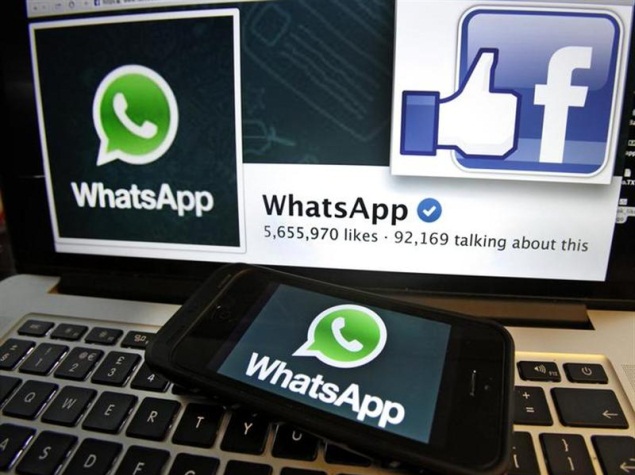Facebook's $19 Billion WhatsApp Buyout Approved by EU Regulators

In a statement explaining its approval of the $19-billon (15-billion-euro) deal, the European Commission, the EU's executive arm, said Facebook and WhatsApp were "not close competitors" and that consumers would continue to have a "wide array of choices".
"We have carefully reviewed this proposed acquisition and come to the conclusion that it would not hamper competition in this dynamic and growing market," EU Competition Commissioner Joaquin Almunia said in a statement.
Facebook, the world's biggest social network, announced the buyout of the WhatsApp messenger service, used by 600 million people, in February and US authorities approved the deal in April.
The European Commission only automatically reviews deals where each company involved has sales of over 100 million euros across at least three EU states, which was not the case for this deal.
But the powerful European telecom lobby had argued that Facebook and Whatsapp together would have access to an unfair stock of user data and gain an unfair competition advantage in the crucial data and consumer habit market used by advertisers.
But the Commission turned down this argument concluding that, regardless of whether Facebook would start collecting WhatsApp user data, "the transaction would not raise competition concerns".
After the merger, "a large amount of Internet user data that are valuable for advertising purposes are not within Facebook's exclusive control," the commission said.
The decision comes as US Internet giant Google faces intense scrutiny from the Commission over accusations of unfair advantages the search engine gives its own services in search results.
Get your daily dose of tech news, reviews, and insights, in under 80 characters on Gadgets 360 Turbo. Connect with fellow tech lovers on our Forum. Follow us on X, Facebook, WhatsApp, Threads and Google News for instant updates. Catch all the action on our YouTube channel.
Related Stories
- Samsung Galaxy Unpacked 2026
- iPhone 17 Pro Max
- ChatGPT
- iOS 26
- Laptop Under 50000
- Smartwatch Under 10000
- Apple Vision Pro
- Oneplus 12
- OnePlus Nord CE 3 Lite 5G
- iPhone 13
- Xiaomi 14 Pro
- Oppo Find N3
- Tecno Spark Go (2023)
- Realme V30
- Best Phones Under 25000
- Samsung Galaxy S24 Series
- Cryptocurrency
- iQoo 12
- Samsung Galaxy S24 Ultra
- Giottus
- Samsung Galaxy Z Flip 5
- Apple 'Scary Fast'
- Housefull 5
- GoPro Hero 12 Black Review
- Invincible Season 2
- JioGlass
- HD Ready TV
- Latest Mobile Phones
- Compare Phones
- Tecno Pova Curve 2 5G
- Lava Yuva Star 3
- Honor X6d
- OPPO K14x 5G
- Samsung Galaxy F70e 5G
- iQOO 15 Ultra
- OPPO A6v 5G
- OPPO A6i+ 5G
- Asus Vivobook 16 (M1605NAQ)
- Asus Vivobook 15 (2026)
- Brave Ark 2-in-1
- Black Shark Gaming Tablet
- boAt Chrome Iris
- HMD Watch P1
- Haier H5E Series
- Acerpure Nitro Z Series 100-inch QLED TV
- Asus ROG Ally
- Nintendo Switch Lite
- Haier 1.6 Ton 5 Star Inverter Split AC (HSU19G-MZAID5BN-INV)
- Haier 1.6 Ton 5 Star Inverter Split AC (HSU19G-MZAIM5BN-INV)







![[Partner Content] OPPO Reno15 Series: AI Portrait Camera, Popout and First Compact Reno](https://www.gadgets360.com/static/mobile/images/spacer.png)









